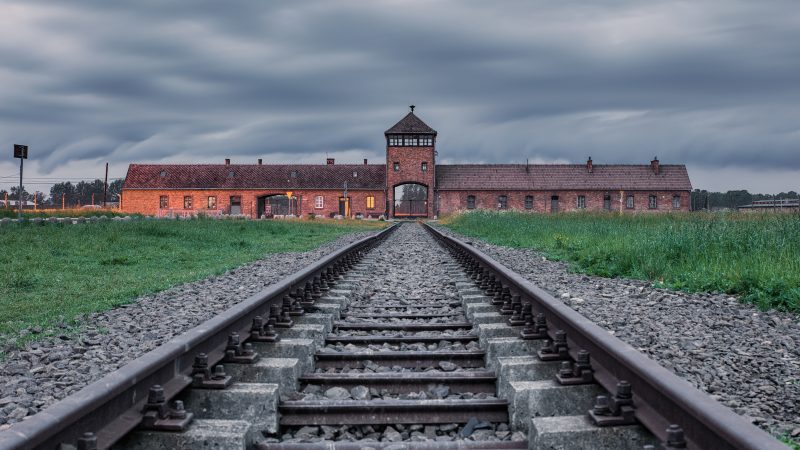
Last week, at the inauguration of President Biden, the first youth poet laureate Amanda Gorman performed her original poem The Hill We Climb. The line that stood out to so many was: “There is always light, if only we’re brave enough to see it. If only we’re brave enough to be it.” She wrote this after the Capitol Hill riots where, among other awful scenes, we saw numerous rioters wearing clothing with antisemitic slogans. The theme for this year’s Holocaust Memorial Day is ‘be the light in the darkness’ and to me it seems incredibly topical, and pressingly important, for us all to consider.
Holocaust Memorial Day is a day for us to remember, to reflect and to renew our commitment to the obligation to ensure that such suffering is never seen again. This year, the theme leads us to remember how people resisted darkness during the Holocaust. How people became points of light and how they proved Gorman’s words that there is always light, no matter how dark or encompassing the darkness is. We remember the stories of Manfred Goldberg, of Alexander Bogen and of all those who found means of resisting the dehumanising persecution they faced. This year’s theme asks us to reflect on the bravery of those who chose to continue to practice their faith, or those who wrote diaries, took photos and produced art.
These acts of resistance meant that their lives were documented and preserved for the future, and we could ensure that these atrocities never happen again. In preserving the stories of the Holocaust, and remembering the individual histories, there is a hope that the world will commit to ensuring that such persecution is not repeated. It is important that we can remember the bravery of those who resisted during the Holocaust and can try to combat persecution and the abuse of human rights wherever we find it.
Last week sadly saw the genocide amendment proposed by peers in the trade bill fail to pass in the House of Commons. If we are to uphold the promise that was made after the Holocaust of ‘never again’, as a country we need to be doing everything in our power to protect human rights and to protect other’s right to practice their cultural and religious identities. As news reports reach our ears of the horrific treatment of the Uyghur people in China, it feels that our country is not doing enough.
As Karen Pollock CEO of the Holocaust Educational Trust said: “The Holocaust is a unique episode in our history, but it is impossible to see the plight of the Uyghurs without hearing echoes of the past.” Holocaust Memorial Day reminds us that we cannot stay silent but must speak up and act to protect those facing persecution. The situation for Uyghurs in Xinjiang is abhorrent.
The reports of forced labour, invasive levels of surveillance, forced internment and forced sterilisation ought to have produced more of a response than we have seen from this government. There have been calls for sanctions to be taken against officials involved in the implementation of Chinese policy towards Uyghurs for a long time. While the government has said that these sanctions are under review, we are yet to see any action, or any timeline for action.
By remembering the Holocaust each year, we commit to remembering the lessons it teaches us. In the years following the liberation of the concentration camps the magnitude of the cruelty and destruction of human life revealed itself. We can never stand by idly, promising that if it gets worse we will do more.
We must take early indicators of human rights abuses seriously, and we must continually strive to illuminate persecution and bring such events to people’s attention. Holocaust survivor Dorit Oliver-Wolff said she feels it is her duty to “say something about the genocide which is happening in China”. And on this Holocaust Memorial Day I feel it is our responsibility to listen. But, as Dorit said, thinking and listening is not enough. We must also do something.




More from LabourList
‘Every Lidl helps: What can the Government do to bring down food prices?’
Delivering in Government: your weekly round up of good news Labour stories
‘Forgotten fathers: pipefitters, plumbers and the paternity pay gap’